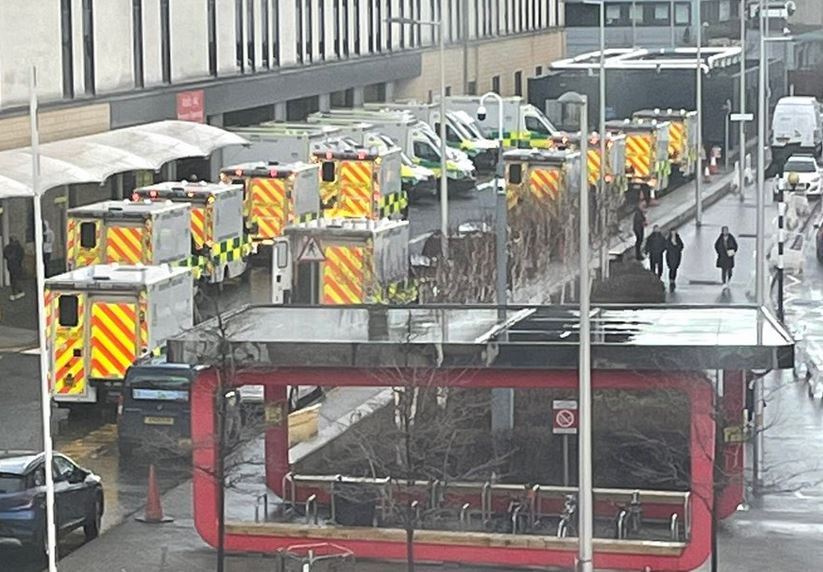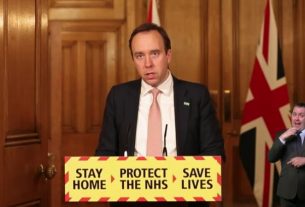The NHS is at breaking point leading medics and health bosses have warned, saying current pressures on the health service are “unbearable and unsustainable”.
Prime minister Rishi Sunak has been told to “step up and take immediate action” by the chair of the British Medical Association (BMA) Prof Phil Banfield.
Figures show delays in emergency care could be causing 500 deaths every week while a “twindemic” of Covid and flu cases is adding to pressures and patient numbers.
Critical incidents have been declared by more than a dozen hospitals unable to cope and function as normal over the festive period.
Hospital trusts have appealed to patients to stay away from accident and emergency (A&E) departments and only attend if their condition is “life threatening”.
The Royal College of Emergency Medicine (RCEM) say 300 to 500 people are dying every week because of problems in A&E departments – and warned against attempts to “discredit” the numbers.
“If you’re at the front line, you know that this is a longstanding problem. This isn’t a short-term thing,” the vice-president of the college, Ian Higginson, told BBC Radio 4’s Today programme.
“These are real figures, and I worry that we’re going to hear attempts to spin and manipulate this data and discredit it. I think if we hear that, we’ve got to say ‘No, that is spin.’”
Chris Hopson, NHS England’s chief strategy officer claimed not to “recognise” the figures and told BBC Radio 4’s World At One programme: “We need to be very careful about jumping to conclusions about excess mortality numbers and their cause without a full and detailed look at the evidence, which is now under way.”
Higginson said hospital A&E departments are in a “complete state of crisis” and described the waits experienced by patients as “appalling”.
“Emergency departments are in a really difficult and in some cases a complete state of crisis right now… and in many cases we are unable to provide care at the standard we would like,” Higginson told BBC Radio 5 Live.
The government has so far refused the offer of talks to address the crisis, made by the BMA. Its chair, Prof Banfield said the silence fro Sunak and health secretary Steve Barclay about discussions to address staff shortages and other issues has been “deafening”.
“It is disingenuous for the prime minister to talk about ‘backing the NHS’ in his new year message, when his own health secretary is failing to discuss how this crisis can be fixed,” said Banfield.
The pressures on the NHS are predicted to continue through to Easter.
NHS staff told to repay Christmas bonus
Elsewhere, the Telegraph reports that NHS staff at Milton Keynes University Hospital (MKUH) have been told to pay back their Christmas bonus.
Workers were told on Christmas Eve that the end-of-year payment – an incentive to get staff to work night-shifts – had to be returned by staff not entitled to it.
MKUH last year spent £3.7 million on agency nurses to cover staff shortages. Overall, the NHS spent £3 billion on staff from agencies. Its total budget is £136 billion per year.
Recruitment firms and agencies supplying NHS staff are charging half-a-billion pounds every year for their service. They are reporting record profits while the staffing crisis in the NHS shows little signs of abating.




